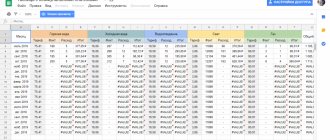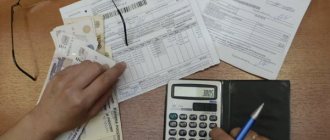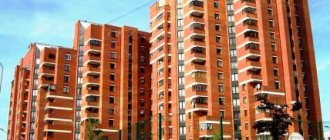Submission order
A statement of claim for the collection of debt for utility services is filed on certain grounds.
The law does not establish a preliminary claim procedure for this category of cases. According to Article 155 of the Housing Code of the Russian Federation, the amount for utilities is paid every month until the 10th day of the next month inclusive. If the debt is not repaid, then from the 11th day the person is considered to be in default. This is the basis for filing a claim.
There is an opinion that in the first month of delay it is impossible to file a claim to recover money for utilities. It is a myth. Formally, the law does not contain any time limits after which it becomes possible to begin legal proceedings. The fact of debt itself is important. In practice, management companies are in no hurry to sue the debtor, giving him a chance to repay the debt. Such behavior does not contradict the law, but it also does not take away the opportunity to enlist help from the court in the first month of delay.
Jurisdiction of the case depends on the amount of debt and the status of the defendant. If the debtor is an individual, and the amount of the debt exceeds 500 thousand rubles, then cases of collection of housing and communal services fall under the jurisdiction of courts of general jurisdiction. A package of documents is submitted at the citizen’s place of residence to the district (city) court.
If the debtor is a legal entity or an individual entrepreneur, then the claim is filed with the arbitration court of the subject at the location of the organization. In practice, this type of dispute is rare. Most cases involve citizen debtors.
In cases of collection of housing and communal services, the general statute of limitations is 3 years. There is an opinion that missing the statute of limitations excludes the possibility of demanding collection of the debt from the debtor. It's a delusion. Failure to pay utility bills is not a continuing violation.
Let's look at an example: a citizen did not pay for housing and communal services in the period from 2010 to 2018. He believes that the statute of limitations has expired, so he continues not to pay the debt. The citizen is wrong. The three-year period will be in any case. Thus, the management company or HOA has the opportunity to recover from the debtor the amount that accumulated three years before going to court. In other words, the citizen will be required to repay the amount of debt from 2015 to 2021.
Final instructions:
- collect a complete package of documents, including a statement of claim;
- submit papers to the court at the defendant’s place of residence (location, if the counterparty is an organization);
- find out the date for setting the trial.
The package of documents also includes a receipt for payment of the state duty. Its size depends on the cost of the claim. Specific percentages are contained in Art. 333 of the Tax Code of the Russian Federation. For example, if the amount of debt is 20,000 rubles, then the state duty will be 4% of the amount. In this case, the case will be considered by order, which will reduce the amount of the fee by 50%. Total – 400 rubles.
If you have questions, consult a lawyer
You can ask your question in the form below, in the online consultant window at the bottom right of the screen, or call the numbers (24 hours a day, 7 days a week):
Example of a statement of claim
Statement of claim for collection of payment for housing and utilities
According to the results of voting by homeowners of apartment building No. 401, located at the address: Moscow, st. Krasnopolskaya, according to voting protocol No. 1 dated June 23, 2020, the method of managing an apartment building was determined - by a management company. Manager
This is important to know: Collective complaint to the management company: sample 2021
The defendant is the sole owner of apartment No. 1005, which is part of the said building. The total area of the apartment is 91.8 sq.m.
The Housing Code of the Russian Federation obliges citizens to timely and fully pay for housing and utilities. The Code stipulates that the payment must be transferred by the 10th day of the month following the reporting month. Residents who pay housing and utilities late or partially are required to pay a fine for each day of delay.
- work on major repairs of the house - 25,473.03 rubles;
- for repairs and maintenance of the house - 15,245.56 rubles;
- for utilities - 29,495.98 rubles, namely: heat supply - 12,803.14 rubles; electricity supply – 11619.20 rubles; – water supply – 5073.64 rubles.
A calculation of the debt to be recovered is attached to the statement of claim.
The plaintiff repeatedly sent claims to the debtor. The last one was awarded on February 25, 2021. To date, the debt has not been repaid.
Violation of the payment procedure entails the difficulty of timely settlement with utility providers and contractors servicing the house, additional costs for paying penalties, and for all residents, including conscientious ones, the suspension or termination of the supply of such services.
The court order of the magistrate of judicial district No. 13 of the Golovinsky district of Moscow dated February 20, 2021 was canceled at the request of the defendant.
- To recover from Nelly Nikolaevna Vodopyanova the amount of paid state duty in the amount of 2906 rubles. 42 kopecks
- Receipt of state duty to the court
- Charter of Management Company "Vasilek"
- Certificate of OGRN and TIN of the plaintiff
- Copy of agreement No. 1005 dated June 29, 2020
- A copy of the personal account of Vodopyanova N.N.
- Debt calculation
- Copies of claims dated 09/15/2020, 10/20/2020, 01/14/2021, 02/25/2021
- A copy of the power of attorney to represent the interests of the Vasilek housing cooperative
- Determination to cancel a court order
- Notice of sending documents and claims to the defendant
03/10/2021 Representative of the plaintiff Gazin Eduard Moiseevich
Pre-trial procedure
The debt of Russians for housing and communal services by the end of summer 2021 reached 1.4 trillion rubles. This huge amount shows the scale of the problem and the conditions in which managers and resource organizations have to work. It is obvious that the fight against defaulters for the public utilities sector continues to be one of the key tasks.
Citizens are required to pay for consumed housing and communal services in the first ten days of the next month. From the 1st to the 10th, their delay is considered current and does not require taking any measures to collect debts for utilities. From the 11th, the debt becomes overdue, the consumer turns into a debtor, and the management company has the opportunity to collect funds from him using the methods permitted by law.
Before filing a claim, it is necessary to take pre-trial measures, including:
- send a notice of the need to repay the debt;
- warn about possible disconnection of unpaid services;
- offer to sign a debt installment agreement. For more information on how to convince a debtor to enter into such an agreement and what conditions to include in it, read a separate article from the magazine “Management of MKD”;
- suspend services.
You can influence debtors using the method of public shaming - the usual lists of defaulters posted in prominent places. However, this must be done with caution so as not to violate personal data protection laws. How exactly to use such a tool and not become violators yourself is described in a special article from the magazine “MKD Management” for June 2021.
For most debtors, pre-trial debt collection measures for utility bills are quite effective. If citizens are experiencing temporary financial difficulties or are in arrears out of ignorance, then through skillful actions the Criminal Code will force them to pay off their housing debts so as not to aggravate the situation. However, there will always be those who deliberately refuse to pay.
The reasons for this may vary. Some people do not have enough money, and they are not going to make any efforts to formulate their own budget wisely, in which there is a line for paying for utilities. Others do not pay housing and communal services for “ideological” reasons. For example, they may believe that the management company is not working effectively, so there is no need to pay it.
Even if this is true, the citizen is still obliged to pay first, and only then demand a recalculation or improvement in the quality of the services provided.
Judicial measures are taken against malicious and unwilling debtors. There are two options here:
- obtaining a court order;
- filing a claim with a decision on the collection of utility bills forcibly.
The pre-trial procedure for collecting overdue payments can be divided into several stages.
If the payment for utility services is not paid for a short period of time, penalties will be charged, according to the Housing Code Art. 155 their size is 1/300 of the refinancing rate for the entire amount of debt.
Moreover, the refinancing rate must be set for the period of existence of the debt.
Another way is to include debtors in special lists that are put on public display. This method is considered the least effective today.
Upon expiration of the 3-month period for failure to pay utility bills, a written notification is sent to the debtor.
It must include the following items:
- Name and details of the company providing housing and communal services;
- Address and basic information of the debtor;
- Date of the notification;
- Amount to be paid;
- Deadline for payment of debt;
- Information indicating the obligation of residents to pay for consumed utilities, as well as who has the opportunity to apply for a subsidy.
The notice specifies the permissibility of suspending or disconnecting housing and communal services, if such a technical possibility exists.
This restriction is introduced after 20 days from the date of receipt of such a document and the absence of repayment of the debt.
The debtor must repay the entire amount of the debt, only after this the supply of water, gas and electricity will be resumed within 2 days from the date of the last repayment of the debt.
If the debtor paid for housing and communal services during this period, even if not in full, then it is impossible to bring him to court in such a situation.
We suggest you read: Tinkoff Bank: find out debt by last name
When applying to court, the plaintiff provides the following documentation:
- Statement of claim;
- Receipt for payment of state duty;
- An extract from the defendant’s personal account;
- Bank details of the housing and utilities supplier;
- Reports on services provided;
- Documents confirming non-payment - certificates from the plaintiff’s accounting department;
- Calculation of debt and accrued fines;
- Documents confirming attempts at pre-trial settlement - notifications.
In fact, in many regions the practice of collecting debts for housing and communal services through writ proceedings developed several years ago. But the Law, which supplemented Art. 122 of the Code of Civil Procedure of the Russian Federation, provides management companies with a new, legal and effective way to collect debts on utility bills:
- Firstly, there is no need to warn the debtor. In order to submit an application, the management company only needs to wait until three months have passed since the last payment.
- Secondly, debt collection for utility bills occurs solely by court decision. This excludes the use of various methods of influence that are condemned by law and cause inconvenience to neighbors.
- Thirdly, the debtor has the opportunity to challenge the court's decision. And thereby change the order of further actions.
In order to apply to the court, two conditions must be met: during the last three months in a row, the debtor has not made any attempts to pay off the existing debt and its amount did not exceed 500,000 rubles. If the accumulated debt exceeds this amount, then a different procedure is used to collect it - bankruptcy.
To obtain an order, which is also an executive document, representatives of the housing department will contact the magistrate. He deals with such cases, regardless of the size of the debt. The review takes no more than 5 days, after which an order is issued. One copy of it is sent by registered mail to the debtor at the address of the apartment in which the dispute arose over the provision of utilities.
Whether or not the debtor received a registered letter does not matter. Refusal to receive will be considered as no objection. And, after the due date, the order will be transferred to the bailiff service, who will carry out the collection. To do this, they can use funds in a bank account and other property.
Sample court order from a magistrate for the collection of utility bills
In the event that there are no funds in the account and the address of the defaulter is not known, the bailiffs have other ways to complicate the life of the debtor for utility payments. For example, by restricting his travel abroad. But more often it doesn’t come to such measures.
Enforcement proceedings for utility debts
If the court rules in favor of the management company, within 1-2 months it is issued a writ of execution, which is then transferred to the bailiff service. From this moment, enforcement proceedings begin, which means a compulsory procedure for debt collection.
How the court decision is executed and debt collection by bailiffs
After the initiation of enforcement proceedings, the debtor is given 5 days to voluntarily repay the debt. If there is no reaction, bailiffs have the right to take enforcement measures:
- Seizure of movable and immovable property and its sale to pay off debt;
- Seizure of accounts and deposits (including bank cards);
- Sending a writ of execution at the place of work/receipt of a pension to withhold a certain amount to pay the debt monthly;
- Ban on travel abroad.
Ban on traveling abroad
The minimum amount of debt to impose a ban on traveling abroad is 30,000 rubles.
Damaged reputation for banks
Another trouble that awaits the debtor is the inability to get a loan from a bank. The fact is that all housing and communal services debts recognized by the court are included in the FSSP database. Since it is freely available, a bank employee can easily detect the debt. To do this, just enter the citizen’s full name, date of birth and region of residence. All this data is in the loan application, so nothing can be hidden.
Is it possible to arrest an apartment for debts on utility bills if the debt was given to the bailiffs?
The seizure of an apartment by bailiffs for debts on housing and communal services involves the imposition of restrictions on the right to dispose of property. The debtor cannot sell, donate, or mortgage it, but can remain living in it with his family.
If, after seizing the apartment, the debt has been paid, the owner should go to court to remove the restrictions.
Eviction and repossession of an apartment for debts on housing and communal services through the court
The most unlikely scenario. Possible only if the amount of debt exceeds the cost of the apartment. A number of exceptions also apply. The apartment will not be able to be repossessed for any amount of debt if:
- This is the only housing and the debtor has no other property.
- The citizen has minor children who live with him.
Who can file a claim?
According to the law, any interested person whose rights have been violated has the right to file a claim for the collection of utility bills. The general rule applies: the service provided must be paid for. The following entities may initiate legal proceedings:
- HOA;
- UK;
- utility services.
In practice, service organizations rarely sue. Most cases involve the participation of “intermediaries” between the service provider and the end consumer - management companies and homeowners' associations.
The procedure for collecting utility bills
The interaction between the management company and the debtor has three stages - pre-trial, judicial and executive. In general it looks like this:
- The citizen missed two monthly payments.
- The management company notifies him of the debt in one of the following ways: by writing the information on the receipt, by telephone (with mandatory recording of the conversation) or by registered mail.
- If the debt is not paid, the management company begins to charge penalties. In parallel with this, the debtor is sent an official claim and is asked to enter into a debt repayment agreement, which sets out a payment schedule.
- If the issue cannot be resolved in this way, the utility service makes a decision to disconnect the service (services - if there are several of them).
- The last resort resorted to by the Criminal Code is going to court.
- If the outcome is positive in favor of the utility service, the writ of execution is handed over to the bailiffs for further work with the debtor.
Filing a claim for debt collection
If a consumer does not pay housing and communal services for more than 2 months, then the management or resource supplying organization has the right to file a claim against him. It is better to entrust the preparation of a claim to a lawyer - an outsider or one working in the organization. The costs of preparing this key document for the dispute are subsequently included in the price of the claim. The debtor may also be required to reimburse other costs:
- penalties and fines, which are accrued on a progressive scale and depend on the period of non-payment;
- actions to disable individual services and their subsequent connection (if they were performed);
- damage to common property caused by the debtor’s refusal of his payment obligations (if any).
When the court receives the claim, a copy is sent to the defendant. First, a preliminary meeting is scheduled, which takes place in the format of a regular conversation. Judicial practice in debt collection shows that a certain percentage of problems are resolved at this stage. This is followed by a substantive meeting, which will be described below.
A statement of claim is a legally significant document. With all the ensuing legal consequences. It is recommended to pay sufficient attention to form and content.
Form requirements:
- written form;
- business style of presentation;
- the presence of parts connected to each other.
The application must be submitted in writing. The document can be drawn up either by hand or by printing. The claim must be stated clearly. Only dry facts and reasons.
Sample statement of claim to court for debt collection
The statement of claim for the collection of utility bills is drawn up in triplicate. One remains with the plaintiff, the second is sent to the court, and the third is sent to the defendant. The debtor is thus brought up to date.
A properly drafted claim and carefully selected documents are half the success in litigation. It is important to competently approach the preparation of the document, since the application is the basis of the process. Below are samples and forms that will help you fill out your claim correctly.
Even if the collection of debts for utility bills has reached the stage of consideration of the claim on its merits, the parties still have the opportunity to conclude a settlement agreement. True, this requires mutual desire. When a settlement agreement is signed, the debt is repaid in installments according to the agreed schedule.
However, not all debtors show a desire to rectify the situation, and some do not even come to the meeting. In this case, the decision is clearly made in favor of the applicant. The defendant is given a month to appeal.
Judicial practice in collecting utility debts shows that defaulters almost always lose such proceedings. The presence of debts for housing and communal services is obvious and easy to prove, so claims in most cases are satisfied in full. Applicants usually lose cases when they go to court with unverified data. This happens extremely rarely, since housing and communal services providers have accumulated vast experience in dealing with defaulters.
When the court decision has entered into legal force, the FSSP employees are given a writ of execution and they initiate their proceedings. Its implementation also follows a standard and long-established scheme.
Statement of claim for utility bills - nuances of consideration
Receive a statement of claim for utility bills and check whether the statute of limitations has expired. According to Article 200 of the Civil Code of the Russian Federation, the calculation of such a period begins from the day when the person learned of a violation of his right. Of course, for a management company this period will be the 11th day of each month after non-payment of payments in full. The statute of limitations is three years. Moreover, this period is calculated for each monthly payment. Are any payments expired? File a claim to apply the statute of limitations.
Keep in mind that only the owner is responsible for paying for the maintenance of the residential premises and contributions for major repairs. If the apartment belongs to a minor, both parents are responsible for paying for it. Regardless of the fact of cohabitation.
If, as a result of the resulting debt accrued in accordance with Art. 155 of the Housing Code of the Russian Federation, the penalty is excessive, ask for its reduction on the basis of Art. 333 Civil Code of the Russian Federation. It is best to prepare such a request in writing.
A court decision based on the results of consideration of a claim for utility payments is subject to forced execution, including by foreclosure on the debtor’s property and on funds placed in his name in a banking organization.
The procedure for challenging a court order
The debtor has ten days to challenge the order. During this period, you can manage to pay off the debt that has arisen, if possible. But if it is not there, it is not necessary to collect funds or documents confirming temporary insolvency. All of this will be needed later if the service provider continues to collect debts.
You just need to remember to indicate which court the application is being submitted to, the applicant’s details and the court order number. Such a statement is sufficient to cancel the issued order. It does not go to the bailiffs, and therefore the debt is not collected.
However, such a cancellation does not mean that in the future the management company will not go to court, now with a claim. However, the resulting deferment can be used to:
- find funds and pay the debt;
- conclude an installment payment agreement with the housing department;
- prepare documents for the meeting.
The latter action is appropriate if the debt arose as a result of disagreement with the service provider regarding the amount of fees or applicable tariffs. The meeting provides a considerable chance not only to prove that you are right, but also to put forward counterclaims.
From the second half of 2021, an order for collecting debts for utility services began to work. Today it is gaining more and more popularity due to the simplicity of the procedure.
We suggest you read: Is a work-related injury caused by an accident on the way home?
Writ proceedings have long been successful in dealing with wage arrears, alimony and other undisputed cases when the violator must be forced to pay. This practice has also been extended to pay for housing and communal services.
A court order against a defaulter for utility bills is issued subject to the following conditions:
- the debt does not exceed 500,000 rubles. We are talking only about debts for housing and communal services, without taking into account, for example, alimony and other things;
- the debt concerns any utility or telephone service. The Code of Civil Procedure of the Russian Federation extends this practice to mandatory contributions of HOA members - if they are not paid, they will be forcibly collected;
- the amount of debt is documented, which eliminates the possibility for the court to doubt the validity of the applicant’s claims;
- the request for a court order came from an authorized person, for example, from a lawyer who protects the interests of the management organization by proxy;
- the place of residence of the defaulter has been reliably established.
If any of the conditions are violated, the applicant will be denied a court order. However, this will not prevent him from moving on to collecting utility debts through legal action.
It is beneficial for the claimant to apply for a court order rather than go to court with a claim. The state duty in this case will be half as low. The magistrate's court issues orders. The debtor is not required to be involved in a meeting to resolve the issue by order.
If the consumer does not agree with the order made, then within 10 days after receiving a copy of this document he can submit an application to cancel it. After this there are two ways:
- the court accepts the debtor’s arguments and cancels the order, after which the dispute will be considered in a lawsuit;
- the court does not cancel the order, and it receives the status of a writ of execution. After submitting this document to the bailiffs, the standard enforcement procedure begins.
How to force a debt to be repaid if the debtor has no money
Often management companies have to face a situation where, in the presence of a court order, it is extremely difficult to collect something from the defaulter due to his lack of money, work and property subject to seizure. In this case, the Criminal Code may take an unconventional step and offer the citizen to work off the debt.
This does not mean that a person becomes completely dependent and gives everything he earns to pay off the debt. On the contrary, he voluntarily gets a job in a management company for the proposed position, receives a salary, and part of it is actually used to pay off the debt. The citizen keeps the rest for himself. Thus, he has the opportunity to improve his financial situation.
Debt settlement is a compromise solution that is beneficial for each party. A separate article is devoted to the organization of this unusual method of collecting utility debts. From it you will learn:
- what advantages does each party receive when organizing debt processing;
- when the management company has the right to offer such a scheme to the debtor;
- how to properly process debt collection;
- How this scenario is implemented in practice in different regions of the country.
Debtors are persons who have entered into an agreement with the HOA, but do not fulfill their obligations to pay for utilities.
There are different degrees of late payments.
As one of the parties to the agreement, the partnership can apply measures of different consequences for the debtor and time costs for management. Failure to fulfill one’s obligations under an agreement with the HOA is a direct violation of Article 153 of the RF Housing Code and entails administrative liability.
There are two aspects to this problem. The first is that according to the Federal Law “On Personal Data” dated July 27, 2006. In addition, Articles 23 and 24 of the Russian Constitution guarantee every citizen personal integrity, and also protect the secrets of his private life. Based on the listed norms of legislation, any distribution by third parties and organizations of information about a private person is a violation of the law.
Article 23 of the Constitution of the Russian Federation
- Everyone has the right to privacy, personal and family secrets, protection of their honor and good name.
- Everyone has the right to privacy of correspondence, telephone conversations, postal, telegraph and other messages. Restriction of this right is permitted only on the basis of a court decision.
Article 24 of the Constitution of the Russian Federation
- Collection, storage, use and dissemination of information about a person’s private life without his consent is prohibited.
- State authorities and local government bodies, their officials are obliged to provide everyone with the opportunity to familiarize themselves with documents and materials that directly affect their rights and freedoms, unless otherwise provided by law.
Another aspect concerns the fact that the law does not say anything about cases when the management organization does not directly name the debtor, but only displays in the general list the apartment numbers and the amount of debt of the HOA. In this case, it cannot be said that confidential data is being disseminated, because the paper does not indicate the involvement of a specific person in this debt.
Enforcement proceedings
You can proceed to collect utility bills with the help of bailiffs after receiving a court order and after a positive decision on the claim is made. Enforcement proceedings include the following main activities:
- they come to the debtor at his place of residence, seize the property and sell it with the transfer of funds to pay for housing and communal services;
- based on requests to banks, bank accounts are found, which are subsequently seized;
- sources of income are determined, part of which is also withdrawn to cover the debt. For example, a certain percentage of wages is withheld - this is done with the inclusion of the employer in the process, to whom the necessary documents are sent;
- the debtor is prohibited from traveling abroad, and so on.
The defaulter, even if there is a court decision that has entered into force, still has the opportunity to sign an agreement on voluntary repayment of the debt. If he continues to refuse his obligations, then the funds will still be collected by all means available by law, and another 7% will be added to them as an enforcement fee.
Neither the agreement nor the bailiffs' penalties relieve the debtor from the need to pay current expenses for housing and communal services.
Possible consequences of non-payments
There are several possible consequences for not paying utility bills on time. The first is to disconnect your apartment from the supply of certain housing and communal services.
The rules for such shutdowns are regulated by Government Decree No. 354.
Paragraph 118 of the document states that the supply of hot water and electricity may be limited to you if the debt exceeds the two-month consumption rate. All this time, the HOA's debts will accumulate on other items in the payment receipt, along with the accrued penalty, an example of the calculation was given above.
The management organization can file a lawsuit against the debtor in a civil court with a request to issue a court order to repay the debt. Today, such cases are considered in a simplified manner within 5 days. In extreme cases, the debtor may even be evicted from the apartment by court decision, as stated in Article 90 of the RF Housing Code.
Housing Code of the Russian Federation, Article 90. Eviction of the tenant and his family members living with him from residential premises with the provision of another residential premises under a social tenancy agreement
If the tenant and his family members living with him for more than six months without good reason do not pay for housing and utilities, they can be evicted in court with the provision of another residential premises under a social tenancy agreement, the size of which corresponds to the size of the residential premises. premises established for moving citizens into the hostel.
However, if the debtor has no other housing, Art. 446 of the Code of Civil Procedure of the Russian Federation will not allow the judicial authorities to evict him.
ATTENTION. If the tenant himself cannot pay his debt to the partnership,
Art. 31 Residential Complex of the Russian Federation
his relatives living in the same apartment with him can be forced to pay.
To the magistrate of precinct No. 78 of the Northern Administrative District of Omsk 644033, Omsk, st. 1 Zatonskaya, 24
Plaintiff: Housing construction cooperative “S”, Omsk, st. ____, __
Defendant: R. resident: Omsk, st. ____, building __, apt. __
claim price: 19,157 rubles, 22 kopecks
Statement of claim for debt collection for housing and communal services
R., living in apartment No. __ in house No. __ on the street. ____ in Omsk is, according to the certificate of state registration of rights dated “__” 11.2010, the owner of the specified residential premises.
As of 2012, the defendant has a debt for consumed housing and communal services (for 9 months of 2011).
From April 2011 to January 1, 2012, the defendant’s debt, according to the plaintiff’s calculations, amounted to 19,157 rubles.
In accordance with Articles 153, 155 of the Housing Code of the Russian Federation, the owner of residential premises is obliged to pay for residential premises and utilities every month, before the tenth day of the month following the expiring month.
In accordance with Part 2, 4 of Article 154 of the Housing Code of the Russian Federation, payment for residential premises and utilities for the owner of premises in an apartment building includes:
- fees for the maintenance and repair of residential premises, which includes fees for services and work related to the management of an apartment building, maintenance, current and major repairs of common property in an apartment building;
- utility fees.
According to Article 158 of the Housing Code of the Russian Federation, the owner of premises in an apartment building is obliged to bear the costs of maintaining the premises belonging to him, as well as to participate in the costs of maintaining common property in an apartment building in proportion to his share in the right of common ownership of this property by paying a fee for the maintenance and repair of residential property. premises.
To date, the debt has not been repaid by the defendant.
Based on the above, I ask the court:
to recover from R. the debt for payment of utilities, maintenance and repair of residential premises in the amount of 19,157 rubles, 22 kopecks.
Attachments: 1. Copy of the statement of claim * ; 2. A copy of the defendants’ personal account; 3. Calculation of the amount to be collected; 4. Calculation of debt of housing cooperative "S"; 5. copy of the extract from the charter of the housing cooperative “S”; 6. a copy of the certificate from the housing cooperative “S” on the tariffs applied when calculating fees for utilities and housing maintenance and repairs; 7. copy of an extract from the minutes of the general meeting of members of the housing cooperative “S” No. 3 dated October 10, 2010; 8. copy of an extract from the minutes of the general meeting of members of the housing cooperative “S” No. 1 dated January 24, 2011; 9. copy of an extract from the minutes of the general meeting of members of the housing cooperative “S” No. 4 dated January 15, 2007; 10. Receipt for payment of state duty; 11. copy of the representative’s power of attorney; 12. copy of the certificate of state registration of property rights dated...11.2010.
Signature___________ /Representative by power of attorney _____/
* From October 1, 2019, the plaintiff must independently send the statement of claim and its attachments to the participants in the process
Until October 1, 2021, the plaintiff sent to the court copies of the statement of claim and appendices to it according to the number of defendants and third parties, and the court sent the received documents to all participants in the process named in the claim.
From October 1, the plaintiff must independently send to other participants in the process a copy of the claim and other documents attached to the claim, and provide confirmation of their sending to the court (clause 6 of Article 132 of the Code of Civil Procedure of the Russian Federation).
In paragraph 1 of the appendix to the above statement of claim, reference should be made to “a notice of delivery or other documents confirming the sending to the defendant of copies of the statement of claim and the documents attached to it, which he does not have.”
Calculation of the amount to be recovered in a claim for collection of debt for maintenance and repairs, provided utilities
Tariffs for 2011 (valid until July 1, 2012)
Heating (heat supply)
The amount of payment for the population for utility services for heating (heat supply) in the absence of metering devices with a room height of up to 2.69 m from the heat source - Municipal enterprise of the city of Omsk "Heat Company (transfer of thermal energy through its own networks) - 30.97 rubles from 1 sq.m. per month.
Cold water supply
The fee established by OJSC OmskVodokanal for cold water supply in residential buildings with centralized hot water supply and equipped with bathtubs is 115.78 rubles per person per month.
Water disposal
The fee established by OJSC OmskVodokanal for water disposal in residential buildings with centralized hot water supply and equipped with bathtubs is 100.96 rubles per person.
Hot water
The amount of payment for the population for the utility service for hot water from the boiler houses of the Omsk municipal enterprise “Thermal Company” when transferring thermal energy through its own networks for a residential building with centralized hot water supply, equipped with bathtubs is 225.09 rubles per person per month.
Housing maintenance - 9 rubles per 1 sq.m.
Major repairs - 20 rubles per month per residential premises
R.'s debt for 9 months of 2011 amounted to: Cold water: 1042.02 rubles (115.78 x 9 months); Water disposal: 908.64 rubles (100.96 x 9 months); Hot water: 2021.81 rubles (225.09 x 9 months); Heating: 11,623.05 rubles (30.97 x 41.7 sq.m. x 9 months); Total: 15599.52 rubles. Housing maintenance: 3377 rubles, 70 kopecks (9 x 41.7 sq.m. x 9 months) Major repairs: 180 rubles (20 x 9) The total amount of debt for 2011 is 19157 rubles, 22 kopecks.
Signature ___________________ /Representative by power of attorney.../
We recommend other claims for debt collection for housing and communal services:
Statement of claim for collection of debt for housing and communal services jointly with the spouses - owners of the apartment
Statement of claim for the collection of debt for the maintenance and repair of residential premises, utilities from the apartment owners in equal shares
Review: Judicial practice of debt collection for housing and communal services (rent). Court decisions, comments
Claims to court:
Statements of claim for recovery to the Arbitration Court
Statements of claim for recovery under a contract, unjust enrichment in a court of general jurisdiction
All documents to the court (procedural documents):
- Statements of claim to court;
- Applications to court (public legal relations, special proceedings..);
- Petitions to court, statements;
- Objections (response) to the statement of claim, complaint, arguments to the court;
- Complaints to the court (appeal, cassation, supervisory, private);
- Complaints against a decision in a case of an administrative offense;
- Complaints to the prosecutor's office and other authorities;
- Complaints, statements, petitions in criminal proceedings;
- Other procedural documents;
- Pre-trial claims (samples), demands, responses to claims.







